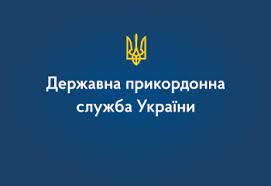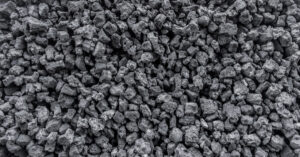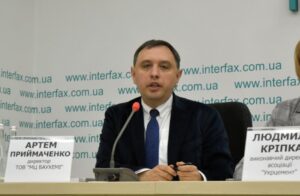
Polish farmers plan to allow trucks to pass through the checkpoint “Rawa-Russkaya – Grebennoye” to enter Poland, except for those moving goods of groups 1-24 of the UKTVED (agricultural products).
As reported in the Telegram channel of the State Border Service of Ukraine on Saturday, the preliminary movement of trucks should begin at 8:00 on April 21.
Earlier it was reported that the movement of trucks at the checkpoints “Shegini-Medika” and “Krakowiec-Korczowa” on the Polish-Ukrainian border was resumed on Saturday morning after Polish farmers ended the protest action in front of them. The registration and passage of cargo vehicles across the border in the two directions is carried out as usual.

Ruta, a major Ukrainian manufacturer of sanitary and hygienic paper products, whose management company is VGP JSC (Lutsk), produced products worth UAH 417.4 million in January-March, up 8.2% compared to the same period in 2023.
According to Ukrpapir Association’s statistics provided to Interfax-Ukraine, in physical terms, in particular, the production of toilet paper in rolls increased by 1.7% to 31.9 million units, which remains the third result in the industry after Kyiv Cardboard and Paper Mill (64.5 million units) and Kokhava Paper Mill (37.7 million units).
Thus, in the first quarter, the company slowed its production growth rate in monetary terms compared to the same period in 2023, which amounted to 13.8% in the first two months. The growth rate of production in physical terms also slowed.
The company produces cellulose-based sanitary products from imported base paper.
VGP’s brand portfolio includes napkins, toilet paper, paper handkerchiefs, and kitchen towels under the Ruta, Ruta Selecta, Fesko, Nosovic, Polotenchko, 100% paper, Servetta, and Ecolo brands. The assortment includes more than 180 items.
As reported, in 2023, the company produced products worth UAH 1 billion 611 million, which is 64.8% more than in 2022.
According to the Clarity-project resource, in 2023, the company received UAH 185.2 million in net profit, up from UAH 3.6 million a year earlier.

In January-March this year, Ukraine increased imports of coke and semi-coke in physical terms by 9.1 times compared to the same period last year, up to 111.600 thousand tons.
According to the statistics released by the State Customs Service (SCS), coke imports in monetary terms increased 7.1 times to $42.718 million over the period.
In the first three months of the year, the country exported 5 tons of coke for $1 thousand to Latvia (there were no exports in January and March, as well as in January-March 2023).
Imports were carried out mainly from Poland (95.34% of supplies in monetary terms), the Czech Republic (3.42%) and Hungary (1.23%).
As reported, in 2023, Ukraine reduced imports of coke and semi-coke in physical terms by 8.5% compared to 2022 – to 328.697 thousand tons, while imports in monetary terms decreased by 25.8% to $129.472 million.
In 2023, Ukraine exported 3,383 thousand tons of coke, down 12.3% compared to 2022. In monetary terms, it decreased by 22.2% to $787 thousand.
Exports were carried out to Moldova (100% of supplies in monetary terms), while imports were mainly from Poland (88.47%), Colombia (7.72%) and the Czech Republic (3.15%).
In 2022, Ukraine decreased exports of coke and semi-coke in physical terms by 98% compared to the previous year to 3,856 thousand tons, and in monetary terms by 97.6% to $1,011 million. The main exports were made to Hungary (42.63% of supplies in monetary terms), Georgia (37.69%) and Turkey (17.41%).
In 2022, Ukraine imported 359.192 thousand tons of coke and semi-coke, which is 54.5% less than in 2021. In monetary terms, imports decreased by 50.3% to $174.499 million. Imports were carried out mainly from the Russian Federation (43.43% of supplies in monetary terms, before the war), Poland (30.07%) and the Czech Republic (13.15%).
As a result of the war, a number of mines and coke plants are located in the territories temporarily not controlled by Ukraine.

As of April 1, 2024, the Export Credit Agency (ECA) supported Ukrainian exports by UAH 627 million, which allowed the country’s exporters to attract UAH 99.8 million in financing from partner banks in cooperation with the agency, said Taras Kachka, Deputy Minister of Economy and Trade Representative of Ukraine.
“Supporting and developing processing companies that export their products to other countries is one of the priorities of the Made in Ukraine state policy. After all, the growth of domestic exports contributes to an increase in production and, at the same time, the creation of new jobs in the economy. As part of the “Made in Ukraine” program, we plan to promote Ukrainian goods to foreign markets. Consumers around the world should know our products. It should become a real symbol of quality for them,” the press service of the Ministry of Economy quoted him as saying.
According to him, the exporters’ support program with the participation of the ECA and partner banks was most often used by entrepreneurs from Vinnytsia region, where the volume of future export revenue in the region amounted to UAH 243.2 million, Kyiv (UAH 235.3 million) and Kharkiv region (UAH 33.7 million).
The most popular goods for sale abroad in the first quarter were toys and play equipment, clothing and various food products, which were supplied to foreign counterparties in Germany, the USA and India.
PJSC Export Credit Agency was founded in 2018. Its sole founder and shareholder is the state represented by the Cabinet of Ministers. The corporate rights owned by the state in the authorized capital of ECA are managed by the Cabinet of Ministers through the authorized management body – the Ministry of Economy.
The main goal of the ECA is to support and stimulate the expansion of exports of goods (works, services) of Ukrainian origin. The institution protects Ukrainian exporters from the risk of non-payment and financial losses associated with the fulfillment of foreign trade contracts, and provides a number of services to strengthen the credit policy of Ukrainian exporters.

Ukraine’s real gross domestic product (GDP) year-on-year growth in March 2024 was 4.9%, compared to 5.0% in February and 5.2% in January, according to the Institute for Economic Research and Policy Consulting (IEPC) Monthly Economic Monitor.
“Businesses faced restrictions on electricity supply as a result of Russian shelling of energy facilities. This has held back GDP growth. In April, we also expect GDP growth to slow down due to problems with access to electricity due to massive generation destruction,” said Alexandra Betlij, a leading researcher at the IEI.
The institute estimates that real gross value added (GVA) growth in the processing industry, slowed to almost 11% in March, down from 17% in January, while real GVA in electricity generation declined by 2% and is expected to fall further in April.
It is pointed out that real GVA in transportation continued to grow by more than 20%. Growth was also maintained in construction, particularly due to the construction of budget-financed fortifications, while growth in trade slowed to 4.6%.
Among the main macroeconomic trends last month, IED experts additionally highlighted the increase in transportation by Ukrzaliznytsia and through the Ukrainian Sea Corridor, which contributes to the development of a number of sectors of the economy, record external financing in the amount of $9 bln, a decrease in inflation to 3.2% and the discount rate to 14.5%, as well as the weakening of the hryvnia to 39 UAH/$1 on the background of restrained interventions by the NBU
It is also noted that the value of merchandise exports fell sharply in March this year compared to March last year amid continued decline in grain and iron ore prices.
As reported, after Ukraine’s GDP growth of 5.3% in 2023, the National Bank expects it to slow down this year to 3.6%, while the government – to 4.6%. According to the Ministry of Economy, GDP growth for January-February this year amounted to 3.6%, while the NBU in January forecast it in the first quarter at 7.1%.

German MC-Bauchemie intends to invest EUR 1.5 mln in the expansion of dry construction mixtures production in Berezan (Kiev region), MC-Bauchemie Ukraine director Artem Priymachenko told Interfax-Ukraine agency.
“We intend to build a new line for special construction materials, such as a variety of polymer-cement mixes for structural repair of concrete, toppings for industrial floors, waterproofing materials, highly functional adhesives for tiles. The approximate volume of investments is EUR 1.5 mln,” he said.
According to Priymachenko, the investments will be made at the expense of MC-Bauchemie’s own funds. The discussion of war risk insurance is underway now.
“We are now in the procedure of obtaining a guarantee from international organizations for military risks. We are considering options – the German government or MIGA from the World Bank,” he said.
According to the company’s plans, the new line in Berezan could be launched at the end of 2025.
Founded in 1961, MC-Bauchemie Group is one of the leading international producers of construction chemicals and technologies. With more than 2,500 employees, it is represented in more than 50 countries.
According to the data of opendatabot, LLC “MC-Bauchemie” (33482370) was founded in 2005, authorized capital 333,8 thousand UAH. Revenue in 2023 356 million 836 thousand UAH, which is 2.6 times higher than the results of 2022 and 9% higher than pre-war 2021. Net profit for 2023 UAH 55 million 618 thousand, in 2022 there was a net loss of UAH 18 million 625 thousand.
construction mixtures, INVESTMENTS, KYIV REGION, MC-Bauchemie